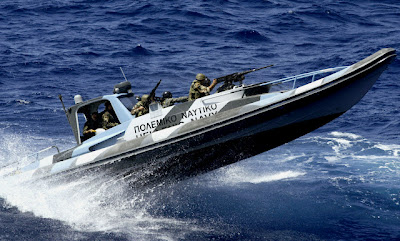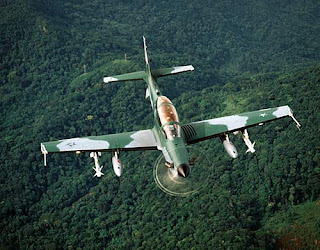There is an extraordinarily silly piece by Leo McKinstry in today's
Sunday Telegraph. He compares the behaviour of former England cricket coach Duncan Fletcher, who resigned after the lacklustre performance of the English team, with that of defence secretary Des Browne over the Iran hostages affair.
Part of the McKinstry thesis is that "a national humiliation should be followed by resignation," which is fair enough. But he wants Browne to fall on his sword and, because he does, his argument fails, even in its own terms. He is simply not comparing like with like.
While there might be parallels, the relationship between the English team and Fletcher is roughly that as between the Cornwall's boarding party and the Captain of HMS Cornwall or, perhaps, Commodore Nick Lambert.
On the other hand, the relationship of Des Browne to HMS Cornwall is closer to that of
David Collier, the chief executive of the
England and Wales Cricket Board, with the English team. Thus, only if McKinstry wants to keep Fletcher in place, and howl after the blood of Collier, does his argument stand.
A similar, although almost certainly unintended confusion exists in the
Sunday Times piece by Mick Smith on the Nimrod, which we
flagged up earlier.
The story is a sound piece of journalism, reporting that the fleet of Nimrod surveillance aircraft currently undergoing major upgrades to MR4 standard will contain the same ageing and leaking fuel systems that caused
last year's disaster in which 14 crew died.
As with McKinstry, though, the confusion arises with allocating the responsibility. The headline (written by the subs) reads, "MoD accused of cost-cutting on crash plane," while Smith's piece starts: "The defence secretary, Des Browne, is facing accusations that the government has put cost-cutting before the welfare of the services by failing to remedy safety faults…".
Smith points out that the fuel pipes that leaked in the disastrous Nimrod crash last year are single skin, and they are being retained in the upgraded aircraft. Yet modern versions are double skin. Keeping the single skin pipes "to save money" is described by an anonymous pilot as "totally reckless.
Raising such an issue is perfectly responsible journalism and it is right and proper that Smith should have written his story in this way. But there are limits to what you can get in and the issues are far more complex than can be allowed for in one piece.
Firstly, the Nimrod upgrade project is already in trouble. In 2004, the MoD was
heavily criticised because it was then £400 million over budget and 71 months late. Retro-fitting new fuel systems would add to the costs and delays, forcing the existing MR2 models to be kept in service even longer than their now much-extended
phase-out date of 2010. That, of course, would create its own problems.
Secondly, double skinning is not a panacea. An outer skin can make inspection of the inner pipework more difficult, concealing corrosion or stress fractures. Then, differential stresses between the two skins (and their fixings) can actually induce fractures that would not have occurred in a single pipe. The combination of this phenomenon and inspection difficulties could lead to precisely the sort of catastrophic failure that double-skinning is designed to prevent.
In a new aircraft, these issues would be considered very carefully, and the design team would eliminate any such problems. But the Nimrod is not a new aircraft and introducing a new system in an old airframe is a laborious and expensive exercise that carries no absolute certainty of success. All or any combination of strengthening the pipe material (or making sections more flexible), changing the design of fixings and/or couplings, increasing inspection access (and inspection frequency) and reducing design life, may be a valid option.
Keeping the single skin, therefore, may be "totally reckless", but it may not. It may not even be motivated, in whole or part, by the need to save money. Delay and the consequences of delay on operations may be an equal or greater consideration.
Either way, Des Browne is neither competent nor qualified to make the decision, which will have rested on detailed and complex technical evaluations, conveyed to him by his advisors. That is the nature of so much modern government. On issues such as these, the minister has to trust his "experts".
It would help if we had an independent technical capability – say through the House of Commons Select Committee system – to second-guess these decisions, but as it stands, we have to rely on the technical competence of the contractors, the RAF and the MoD. And mistakes do happen. But to pin them solely, or at all, on a politician – a layman in engineering terms – does not seem to be the complete answer.
Herein lies a fascinating conundrum which goes to the heart of the nature modern government – as to whether the systems of accountability developed in the 18th Century and before are still adequate.
Looking at the Nimrod project as a whole, this, as we pointed out
on Thursday, was commissioned in 1996 - by a Conservative defence secretary,
Michael Portillo. The original proposal had been for a brand-new (American-built) airframe but the prime contractor, BAE Systems, played the "jobs" card and an unpopular Tory government caved in and bought British.
Anyone looking dispassionately at the project could have seen problems. A new-build was always a better option. So, at the heart of Browne's current travails is a poor, politically motivated decision by the Tories. But it could have been overturned in 1997 by the incoming Labour government, when the new defence secretary,
George Robertson, took over.
Two other defence secretaries, Geoff Hoon and John Reid have since been involved in the project and only now is Browne in the hot seat. If the current incumbent is to be held responsible, this is the equivalent of the party game, "pass the parcel". The last one holding the post gets the blame. Who, under those circumstances, would be willing to take on a portfolio?
On the other hand, what more usually happens is that, with so many people sharing the responsibility, the blame is diluted and no heads roll. Not least, because the decision was originally made by a government which is now in opposition, the politicians are compromised and criticism is thus muted.
In these circumstances, therefore, how we manage the process of government, minimise failure and hold people to account when they do fail, are serious issues and need answers. They are ones, though, that newspapers can hardly handle – although the occasional, thoughtful op-ed would not go amiss. Think-tanks might make a contribution, but nothing seems forthcoming, and you cannot expect anything currently from an opposition which is more interested in political point-scoring than serious politics.
That leaves the blogs. We at least are free from editorial constraints – which frustrate serious defence correspondents – and, if some writers could get past "tee-hee" political gossip and "pub talk", the blogsphere could make a contribution to a debate that we badly need to have.
Such ruminations, however, do not have a big market. Smith's piece will be read by, perhaps, a million people. McKinstry's stupidity will get an audience of several hundred thousand. This piece will get no more than two or three thousand readers. It may be enough – quality rather than quantity - but, although unlikely, it would be nice to see a broader debate.
 Given that the MoD has been savagely attacked, not least on this blog (most recently here, for its failure to adopt in both Iraq and Afghanistan the widespread use of what the US are now calling the Mine Resistant and Ambush Protected Vehicles (MRAP), you would think that it would be quick to make a public announcement when it responded to the criticisms and actually did something that could be applauded.
Given that the MoD has been savagely attacked, not least on this blog (most recently here, for its failure to adopt in both Iraq and Afghanistan the widespread use of what the US are now calling the Mine Resistant and Ambush Protected Vehicles (MRAP), you would think that it would be quick to make a public announcement when it responded to the criticisms and actually did something that could be applauded.
























